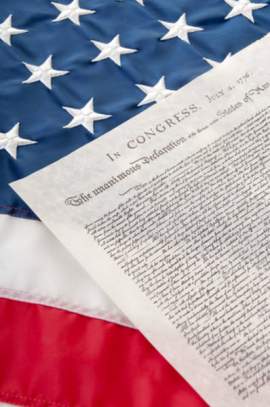
24th Amendment

The 24th amendment was important to the Civil Rights Movement as it ended mandatory poll taxes that prevented many African Americans. Poll taxes, combined with grandfather clauses and intimidation, effectively prevented African Americans from having any sort of political power, especially in the South. When the 24th amendment passed, five southern states, Virginia, Alabama, Texas, Arkansas, and Mississippi still had poll taxes. Most Southern states, at one time or another had poll taxes and in severe cases, had cumulative poll taxes that required the voter to pay taxes not just from that year, but also previous years they had not voted.
What is the text of the 24th amendment?
Section 1
The right of citizens of the United States to vote in any primary or other election for President or Vice President, for electors for President or Vice President, or for Senator or Representative in Congress
(citizens have the right to elect their representatives in national, state, local and primary elections)
shall not be denied or abridged by the United States or any State by reason of failure to pay any poll tax or other tax.
(poll taxes are a barrier to voting and will be repealed)
Section 2
The Congress shall have power to enforce this article by appropriate legislation.
(Congress will enforce these provisions and enact laws that help to enforce the 24th amendment)
Why was the 24th amendment important?
The 24th amendment is important because African Americans in the South faced significant discrimination and could not vote for elected officials that would work to end the discrimination. Although the poll tax was never a large sum of money, it was just enough to stop poor African Americans and whites from voting. Although the 15th amendment protected the rights of citizens to vote in elections, this did not stop creative measures specifically tailored against African Americans, such as literacy tests, which represented an unfair burden to the poor and illiterate, who by the constitution are entitled to their vote.
Ratification
Illinois was the first state to ratify the 24th amendment in 1962. The ratification process ended in 1964 with South Dakota being the 38th state to ratify the amendment. Unsurprisingly, most Southern states, except Florida, that had had the poll tax, voted against or failed to ratify the amendment. Some of these states kept the poll tax law in legal code, even though they could no longer enforce it. The Supreme Court would later rule against other forms of taxation on voters, such as Virginia requiring a certificate of residence to vote, which came at a price.

















